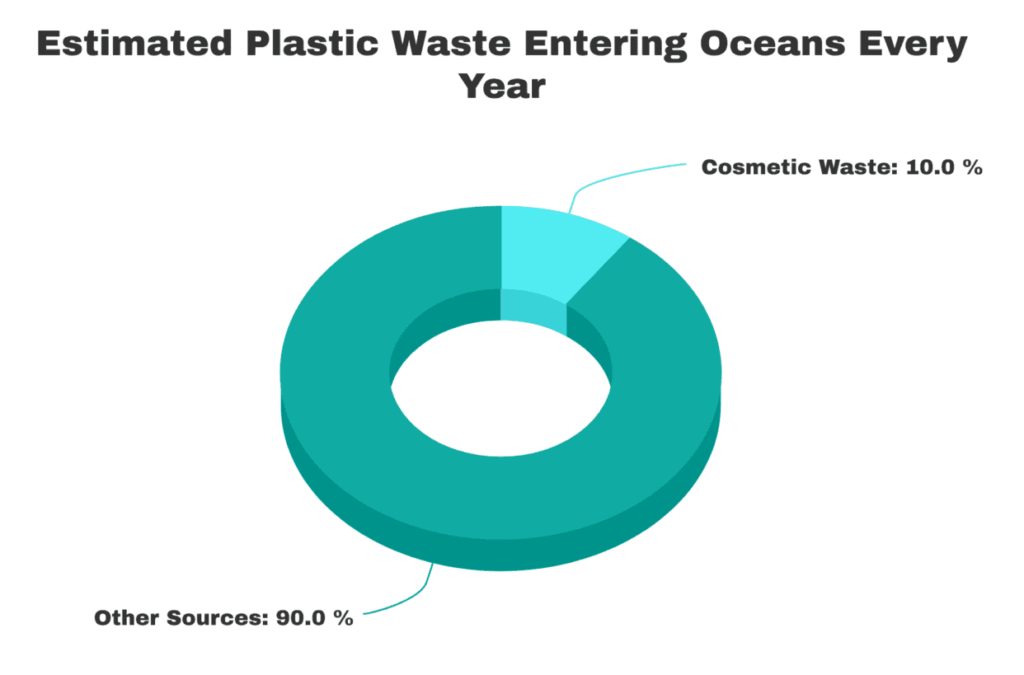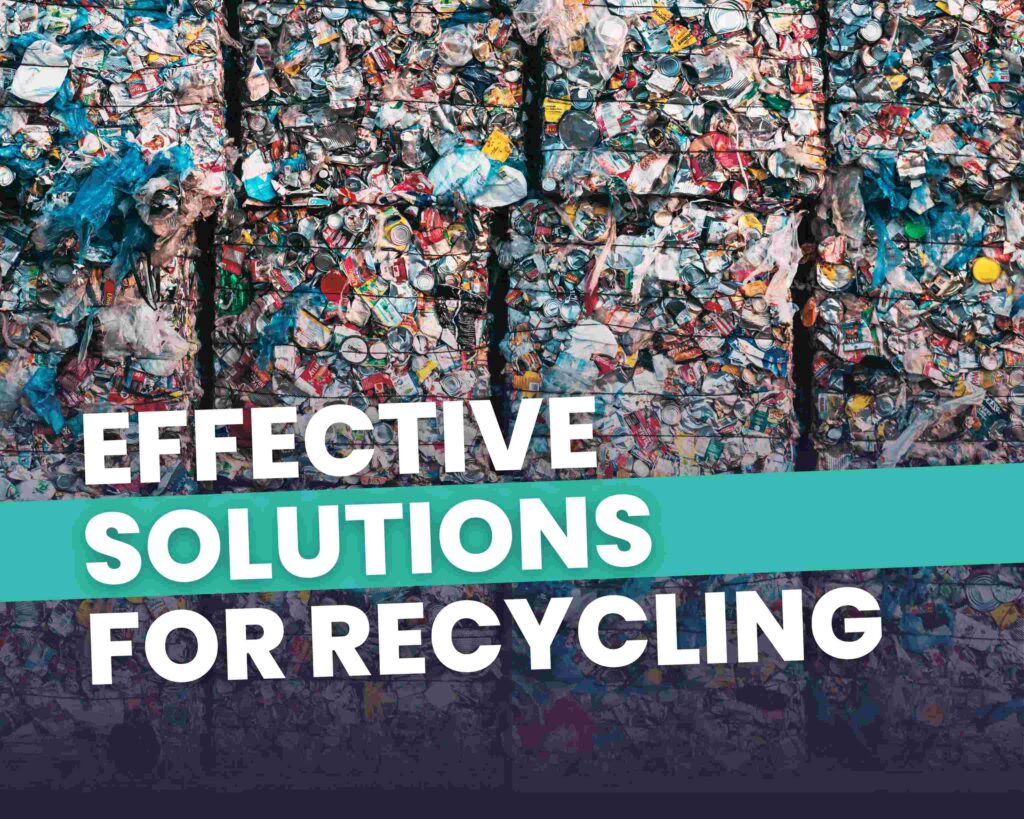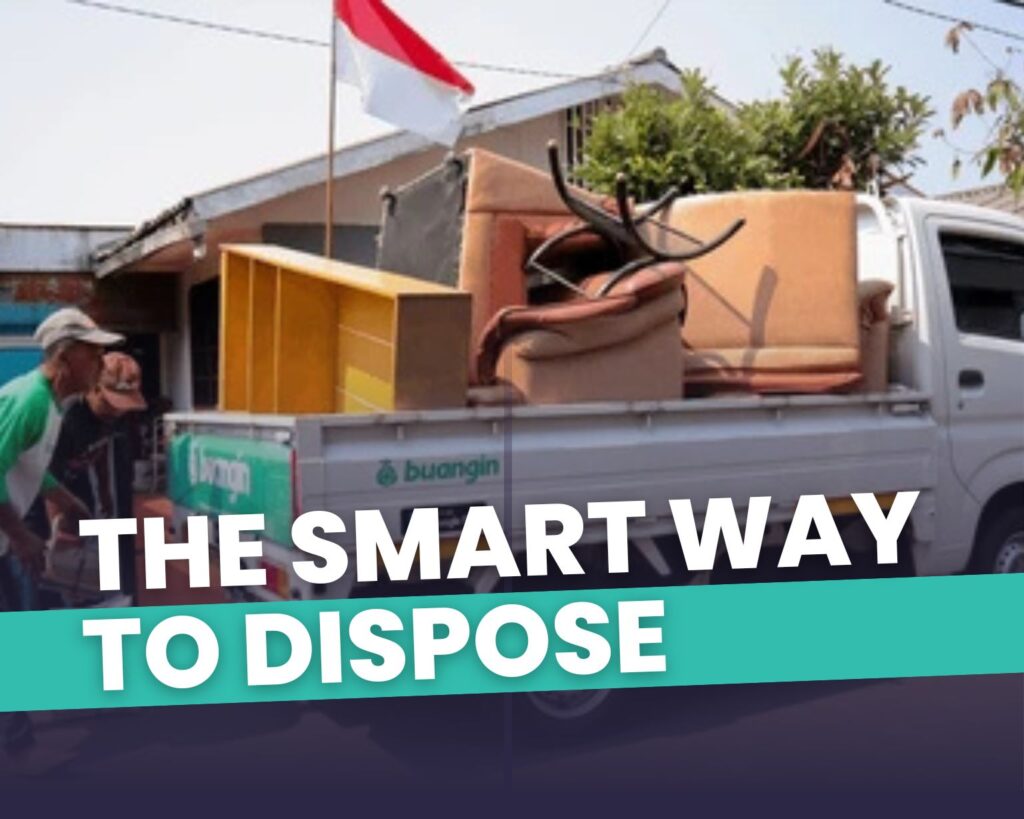Cosmetics Disposal: What the Beauty Industry Isn’t Telling You

Jessica Gonzalez
Global Chief Executive | Founder Happen Ventures
Every time you toss out an empty lipstick tube or foundation bottle, do you ever stop to think about where it ends up? The harsh reality is that the beauty industry is a significant contributor to the global plastic pollution crisis. An estimated 8 million tonnes of plastic enter our oceans every year, and a significant portion of this comes from cosmetic waste. Cosmetics disposal isn’t just about throwing away old products, it’s about understanding the profound environmental impact of our beauty routines.
In this article, we’ll delve deep into the environmental repercussions of cosmetic waste, from the depletion of natural resources to the emission of greenhouse gasses.
We’ll also explore sustainable solutions and how companies like Happen Ventures are leading the charge in providing eco-friendly cosmetics disposal options.
Table of Contents
How much waste is generated from the cosmetic industry? The Stark Reality
The cosmetic industry is a major player in the global market, with its products gracing the shelves of almost every household. However, behind the glitz and glamour lies a pressing issue: waste.
According to a recent report by Insider Packaging, the beauty industry is one of the worst culprits for creating plastic waste, much of which is unrecyclable.
This waste not only contributes to the ever-growing landfills but also poses a threat to marine life, with plastic particles finding their way into our oceans.
How is the cosmetic industry harmful to the environment?
The cosmetic industry’s environmental footprint is vast. From the extraction of raw materials to the disposal of finished products, every step has an impact.
The use of non-biodegradable packaging, the chemicals in the products, and the energy-intensive manufacturing processes all contribute to its environmental harm.
Moreover, improper Cosmetics disposal methods, such as dumping cosmetics in water sources or sending them to landfills, can lead to soil and water contamination.
What is the danger of cosmetics?
Beyond the environmental concerns, cosmetics pose a direct threat to human health. Many products contain harmful chemicals, including petrolatum and polycyclic aromatic hydrocarbons (PAHs), which can lead to skin irritations, eye infections, and even more severe health issues when absorbed into the body over time.
Are cosmetics hazardous? Beauty’s Hidden Shadows
The beauty industry, for all its allure, has a dark side. Many cosmetics contain harmful chemicals that can pose health risks. From heavy metals to toxic makeup, consumers are often unaware of what they’re putting on their skin.
Many makeup bags include lipstick, which contains lead, a neurotoxin. This finding prompts the question: Is lipstick hazardous waste?
The answer is more complex than a simple yes or no, but it underscores the need for transparency and safer formulations in the industry.
Is lipstick hazardous waste?
Researchers have found traces of lead in lipsticks, particularly in certain brands.
Though these levels typically stay under the safety limits set by regulatory authorities, using these products every day can accumulate and become worrisome.
Therefore, even though lipstick isn’t officially a ‘hazardous waste,’ being aware and selecting safer products is crucial.
Why are cosmetics a hazardous chemical?
Cosmetics can be hazardous due to the inclusion of chemicals that might be harmful to the skin and the environment.
These chemicals can cause allergic reactions, long-term health issues, and environmental degradation when they wash off and enter water systems.
How do you recycle cosmetic products? A Green Beauty Guide
Recycling cosmetics is more than just tossing them in the recycle bin. You need to understand the components, separate them, and ensure correct processing.
For instance, you can easily recycle glass and metal components, but certain plastics present challenges.
Also, many cosmetics companies are now offering take-back programs, allowing consumers to return used products for recycling.
Can you recycle old cosmetics?
Yes, you can recycle old cosmetics, but it takes effort. You should clean containers thoroughly to remove any residue. Check plastic components for recycling symbols, and if unsure, consult local recycling guidelines or facilities.
How do you recycle cosmetic bottles?
You can recycle cosmetic bottles in different ways, depending on their material.
- Plastic Bottles: Check for the recycling symbol and number. Clean the bottle thoroughly and place it in the appropriate recycling bin.
- Glass Bottles: Place these directly into glass recycling bins.
- Metal Containers: Recycle containers made of aluminum or other metals with other metal items.
How are cosmetics disposed? Beyond the Beauty Surface
Disposing of cosmetics is not as straightforward as it might seem.
While you can recycle some components, you need special treatment for others, especially those containing hazardous chemicals.
For instance, never pour liquids down the drain because they can contaminate water sources. Instead, take them to a household hazardous waste facility.
Moreover, many cosmetics companies are now taking initiatives to reduce waste by offering recycling programs and using eco-friendly packaging.
How are expired cosmetics disposed?
Expired cosmetics should be handled with care. If the product has separated, changed color, or developed an odd smell, it’s a sign that it’s past its prime.
Such products should be emptied out of their containers, which can then be recycled if they are made of recyclable material. The product itself should be wrapped in paper and disposed of in the trash.
What happens to cosmetics after the expiry date?
After the expiry date, cosmetics can undergo chemical changes, making them less effective and potentially harmful. The preservatives that keep them fresh can break down, allowing bacteria to grow.
This is why it’s crucial to dispose of them properly and not continue using them past their expiration date.
What are the procedures to dispose of plastics? The Eco-Path Forward
Plastic disposal is a global concern, given its non-biodegradable nature. The process involves several steps:
- Collection: Plastics are collected from various sources, including households and businesses.
- Categorization: They are then categorized based on their type, such as PET, HDPE, and PVC.
- Washing: The plastics are washed to remove any impurities.
- Shredding: They are then shredded into small pieces.
- Identification and Sorting: The shredded plastics are sorted based on their resin content and color.
- Extrusion: The sorted plastics are then melted and formed into pellets, which can be used to make new products.
How do you dispose of foundation bottles and sunscreen?
Foundation bottles, if made of glass, can be recycled directly. If they are made of plastic, they should be cleaned and placed in the appropriate recycling bin. Sunscreen bottles, often made of plastic, can be recycled similarly.
However, any leftover product should be removed before recycling.
What are the ways in which waste products are disposed of?
Waste products can be disposed of in various ways, depending on their nature:
- Recycling: Suitable for materials like paper, glass, and certain plastics.
- Composting: For organic waste like food scraps and yard waste.
- Landfills: For non-recyclable waste, though this method has environmental implications.
- Incineration: Burning waste to produce energy, though it can release harmful emissions.
How can we reduce cosmetic waste? Beauty’s Eco-Blueprint
Reducing cosmetic waste is crucial for a sustainable future. Here are some steps to consider:
- Sustainable Beauty Routine: Opt for products with eco-friendly packaging and those that prioritize sustainability.
- Avoiding Plastics: Choose products packaged in glass or metal, which are more easily recycled.
- Shopping Ethically: Support brands that have sustainable practices and offer recycling programs.
- Packageless Shampoo: Consider using shampoo bars that come without bottles.
- Multiuse Makeup Removers: Opt for reusable makeup remover pads instead of disposable wipes.
- Reduce Product Waste: Use products sparingly and only buy what you need.
How can we reduce beauty waste?
Beauty waste can be reduced by:
- Mindful Purchasing: Only buy what you need.
- Using Products Till the Last Drop: Before discarding, ensure you’ve used up all the product.
- Opting for Refillable Options: Some brands offer refills, reducing the need for new packaging.
- Supporting Sustainable Brands: Brands that prioritize eco-friendly practices can help reduce overall waste.
How do you dispose of old cosmetics?
Old cosmetics should be disposed of responsibly:
- Check for Recycling Symbols: Ensure the packaging is recyclable.
- Clean Out Containers: Before recycling, ensure all product residue is removed.
- Participate in Take-Back Programs: Some brands offer programs to take back and recycle their products.
Community Donation as the Ideal Cosmetics Disposal Method
In the vast landscape of cosmetics disposal methods, Happen Ventures presents a unique and impactful solution: community donation. Instead of letting expired or unused cosmetics go to waste, Happen Ventures facilitates the donation of these products to communities in need.
This not only ensures that the products find a second life but also aids those who might benefit from them.
By focusing on community donation, Happen Ventures addresses two significant issues simultaneously. First, it reduces the environmental burden of cosmetic waste. Second, it provides essential products to underserved communities, enhancing their quality of life.
Moreover, businesses that collaborate with Happen Ventures for their cosmetics disposal needs find an added advantage: a boost in their ESG (Environmental, Social, and Governance) score. In today’s corporate world, a strong ESG performance is not just a badge of honor, it’s a necessity.
By ensuring responsible disposal through community donation, businesses can showcase their commitment to sustainability and social responsibility, making them more attractive to eco-conscious consumers and investors.
Happen Ventures’ beneficial reuse solution is not just about disposal, it’s about giving back, making a difference, and fostering a sense of community.
The world where cosmetic waste is a growing concern, solutions like these are not just welcome, they are imperative.
Conclusion
The cosmetic industry, while bringing beauty and confidence to many, has its set of challenges when it comes to sustainability. The waste generated, both in terms of product and packaging, has significant environmental implications.
However, with informed choices, both by consumers and businesses, we can pave the way for a more sustainable future. By understanding the impact of our choices and opting for eco-friendly alternatives, we can ensure that the beauty industry remains beautiful in every sense of the word.













